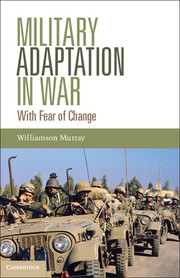4 - Flawed Adaptation: German Adaptation
The Opening Battles of World War II
Published online by Cambridge University Press: 05 June 2014
Summary
Perhaps nothing makes clearer the importance of peacetime military culture and its influence over the ability of military institutions to adapt to the actual conditions of war than the case of the German Army and the Luftwaffe between 1920 and 1939. This is true both in a positive and a negative sense. Unlike other European military organizations after 1918, the German Army learned the tactical lessons of the First World War, and the innovations and force structure it developed in the interwar period reflected what had actually happened on the battlefields. The reference to actual combat experience provided the Wehrmacht with an inestimable advantage over its opponents in the first three years of the Second World War. But in terms of learning from their operational and strategic errors, German performance during the interwar years was not nearly so impressive. Accordingly, those weaknesses would reappear during the Second World War and, in the end, negate the initial advantages with which the Germans launched their second great attempt to gain European hegemony.
It has been accepted as a truism by many historians, including military historians, that military institutions study the last war, and that is why they do badly in the next conflict. Nothing could be further from the truth: for most of history, military institutions have not studied the last war, which is precisely why they have so often failed to adapt to the realities of the next war. Moreover, even when they have studied the last war, they have tended to study what made their political and military leaders feel comfortable and to disregard those areas in which they have been least effective or confronted the greatest difficulties.
- Type
- Chapter
- Information
- Military Adaptation in WarWith Fear of Change, pp. 119 - 152Publisher: Cambridge University PressPrint publication year: 2011



